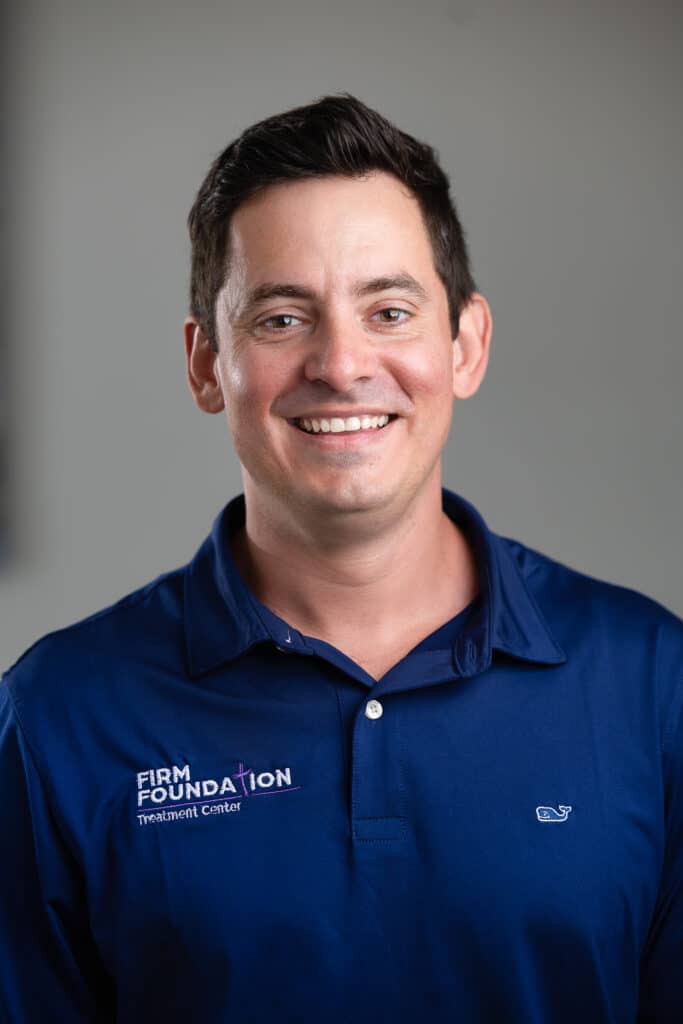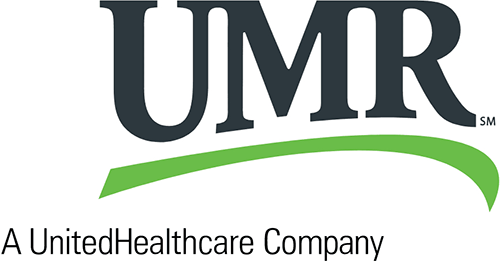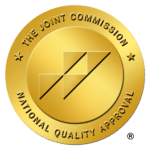“Submit yourselves, then, to God. Resist the devil, and he will flee from you.”
James 4:7
Comprehensive Care Through Our Partial Hospitalization Program (PHP) near Atlanta
At Firm Foundation Treatment Center, we offer a Partial Hospitalization Program (PHP) for men seeking intensive support in their recovery from addiction. Our PHP provides a structured environment with Christ-centered care, combining evidence-based treatment modalities like Cognitive Behavioral Therapy (CBT), Dialectical Behavior Therapy (DBT), Motivational Interviewing (MI), Relapse Prevention, Family Systems Therapy, Eye Movement Desensitization and Reprocessing (EMDR), and Art Therapy. PHP is ideal for men who need a high level of support but do not require a 24-hour residential treatment program.
This program allows clients to receive intensive therapy during the day while returning home or to a sober living environment in the evening. Our PHP helps men address the root causes of addiction, process trauma, and build the skills needed for long-term recovery.
What is the Partial Hospitalization Program (PHP)?
A PHP represents a wonderful transition for individuals who are progressing in their recovery journey and no longer need 24/7 supervision, yet still benefit from meaningful structure and support. It beautifully bridges the gap between inpatient care and outpatient treatment, offering a thoughtful blend of clinical treatment and real-world experience.
At Firm Foundation, our PHP is perfectly crafted for clients who:
- Have successfully completed inpatient treatment and are ready for ongoing therapeutic support.
- Seek a structured program that fosters continued progress in their early recovery.
- Appreciate daily care and accountability as they start to reintroduce themselves to everyday life.
Clients typically participate in PHP sessions five to six days a week, engaging in individual therapy sessions, group therapy session, and enriching faith-based recovery activities throughout the day, before returning to their sober living environment in the evening. This level of care empowers individuals with a strong support network while embracing greater personal responsibility, paving the way for a bright and hopeful future!
Cognitive Behavioral Therapy (CBT) in PHP
Cognitive Behavioral Therapy (CBT) is one of the most widely used and effective therapeutic approaches in addiction recovery. CBT focuses on identifying and changing negative thought patterns that contribute to substance use. In our Atlanta PHP treatment, CBT helps clients develop healthier ways of thinking and behaving, breaking the cycle of addiction.
How CBT Supports Recovery in PHP:
- Identifying Negative Thought Patterns: CBT helps clients recognize the destructive thoughts that lead to substance use, such as feelings of hopelessness or low self-worth.
- Developing Coping Strategies: Clients learn practical skills to manage cravings and handle high-risk situations without resorting to drugs or alcohol.
- Challenging Cognitive Distortions: By challenging irrational thoughts, such as “I need alcohol to relax,” CBT empowers clients to replace harmful behaviors with healthy ones.
Dialectical Behavior Therapy (DBT) in PHP
Dialectical Behavior Therapy (DBT) is particularly effective for individuals who struggle with emotional regulation or impulsivity, both of which are common in men with substance use disorders. DBT combines mindfulness practices with skills for managing emotions and relationships, helping clients build a life worth living without substances.
How DBT Supports Recovery in PHP:
- Emotional Regulation: DBT teaches clients how to identify and manage intense emotions without turning to substances.
- Distress Tolerance: Clients learn how to tolerate and cope with distressing situations in healthier ways, reducing the risk of relapse.
- Interpersonal Effectiveness: DBT improves communication skills, helping clients build healthier relationships and navigate conflicts without substance use.
Motivational Interviewing (MI) in PHP
Motivational Interviewing (MI) is a client-centered therapy that helps men explore their ambivalence about recovery and strengthen their motivation for change. MI is particularly useful for individuals who may feel uncertain about quitting substances or are struggling with self-doubt about their ability to maintain sobriety.
How MI Supports Recovery in PHP:
- Exploring Ambivalence: MI encourages clients to explore their mixed feelings about sobriety, helping them clarify their personal reasons for wanting to change.
- Building Confidence: MI empowers clients by focusing on their strengths and past successes, boosting their confidence in their ability to overcome addiction.
- Enhancing Motivation: MI helps clients develop a stronger internal drive to pursue recovery, making them more likely to engage fully in the treatment process.
Relapse Prevention in PHP
Relapse Prevention is a critical part of the PHP at our treatment facility, focusing on helping clients develop the skills and strategies they need to avoid relapse. Relapse often occurs when individuals face triggers or high-risk situations that they are not prepared to handle. Our relapse prevention strategies equip clients with tools to manage cravings, avoid triggers, and maintain their sobriety.
How Relapse Prevention Supports Recovery in PHP:
- Identifying Triggers: Clients work with their therapist to identify the specific people, places, or emotions that trigger their cravings for substances.
- Developing a Relapse Prevention Plan: Each client creates a personalized plan that includes coping strategies, support systems, and practical steps to avoid relapse.
- Building Emotional Resilience: Through relapse prevention techniques, clients learn how to manage stress and negative emotions without turning to substances.
Family Systems Therapy in PHP
Family Systems Therapy recognizes that addiction impacts not only the individual but also their entire family. This therapeutic approach involves working with the family as a unit, helping them address unhealthy dynamics, improve communication, and build a supportive environment for recovery.
How Family Systems Therapy Supports Recovery in PHP:
- Improving Communication: Family Systems Therapy teaches families how to communicate more effectively, reducing misunderstandings and conflicts.
- Healing Relationships: Addiction often damages family relationships, and Family Systems Therapy provides a space for healing and reconciliation.
- Creating a Supportive Environment: By addressing unhealthy dynamics like enabling or codependency, Family Systems Therapy helps families build a more supportive environment for the individual in recovery.
Eye Movement Desensitization and Reprocessing (EMDR) in PHP
Eye Movement Desensitization and Reprocessing (EMDR) is an evidence-based therapy that helps individuals process traumatic experiences that contribute to their addiction. Many men use substances to cope with unresolved trauma, and EMDR provides a safe and structured way to work through these painful memories.
How EMDR Supports Recovery in PHP:
- Processing Trauma: EMDR helps clients process traumatic memories in a healthy way, reducing the emotional impact these memories have on their daily lives.
- Reducing Triggers: By addressing the trauma that often serves as a trigger for substance use, EMDR helps clients reduce their cravings and manage stress.
- Building Healthier Coping Skills: As clients heal from trauma, they are better able to develop healthier coping mechanisms for managing emotional pain and avoiding relapse.
Art Therapy in PHP
Art Therapy offers clients a creative outlet for expressing emotions, processing trauma, and exploring their recovery journey. This therapeutic approach is particularly helpful for individuals who struggle to articulate their feelings verbally. Through creative expression, clients can gain new insights into their emotions and experiences.
How Art Therapy Supports Recovery in PHP:
- Non-Verbal Expression: Art Therapy allows clients to express emotions and experiences that may be difficult to put into words.
- Processing Trauma: Creating art can help clients process trauma in a non-verbal way, providing a safe space for healing.
- Building Self-Esteem: Art Therapy encourages personal growth and helps clients build self-confidence, which is essential for long-term recovery.
Dual Diagnosis Treatment at Firm Foundation Treatment Center
Firm Foundation is proud to offer dual diagnosis treatment at our Georgia treatment center. This program provides crucial support for individuals dealing with co-occurring disorders, such as having both a mental health disorder and a substance use disorder. This integrated model of treatment recognizes the complex relationship between addiction and mental health conditions and addresses them both. Our dual diagnosis treatment is tailored to the individual needs of each client.
Christ-Centered Healing in PHP
At Firm Foundation Treatment Center, our PHP is rooted in faith. We believe that true healing comes from addressing the mind, body, and spirit. Our Christ-centered approach integrates spiritual practices, such as prayer and scripture, into each therapeutic modality. This holistic approach helps men strengthen their relationship with God while working toward their recovery goals.
- Prayer and Reflection: Clients are encouraged to incorporate prayer and reflection into their daily routine, finding strength and guidance through their faith.
- Spiritual Growth: Our PHP includes opportunities for spiritual growth, such as Bible study and spiritual counseling, helping clients reconnect with their faith as they navigate the challenges of recovery.
Why Choose Firm Foundation Treatment Center for PHP?
Firm Foundation Treatment Center is dedicated to providing comprehensive, Christ-centered care for men in recovery. Our PHP offers a structured, supportive environment where clients can address the root causes of their addiction and develop the skills necessary for long-term sobriety.
- Experienced Therapists: Our team of licensed therapists is trained in evidence-based therapies such as CBT, DBT, EMDR, and more, ensuring that clients receive the highest quality of care.
- Faith-Based Healing: We integrate faith into every aspect of our PHP, helping clients strengthen their spiritual connection as they work toward recovery.
- Personalized Treatment Plans: We tailor our PHP to meet the unique needs of each client, providing individualized care that supports their personal recovery journey.
The Role of PHP After Inpatient Treatment
The transition from inpatient rehab to independent living can be challenging. Without adequate support, individuals may struggle with triggers, temptations, or lingering emotional and psychological challenges. PHP plays a crucial role in bridging this gap by providing:
A Structured Environment
PHP offers a structured daily routine that keeps clients focused on their recovery goals. This structure minimizes the risk of relapse while helping individuals build healthy habits and coping mechanisms.
Continued Therapeutic Support
Inpatient rehab often uncovers underlying issues such as trauma, anxiety, or depression that contribute to addiction. PHP provides ongoing access to therapy, allowing clients to continue working through these challenges in a supportive setting.
Real-World Application
PHP allows clients to begin reintegrating into their daily lives while still receiving substantial support. Whether returning to work, reconnecting with family, or building a new routine, PHP helps individuals apply the skills they’ve learned in treatment to real-world situations.
Accountability and Community
One of the most critical aspects of early recovery is having a support system. PHP fosters a sense of community and accountability through group therapy, faith-based activities, and mentorship opportunities.
The Benefits of Firm Foundation’s PHP near Atlanta
Firm Foundation’s PHP program stands out for its integration of professional care and Christ-based principles, creating a holistic approach to addiction recovery. Here’s how our program benefits clients:
Faith-Centered Healing
At Firm Foundation, we believe that true freedom from addiction is found in Christ. Our PHP incorporates Celebrate Recovery, a Christ-centered program that helps individuals address the root causes of their struggles through Biblical teachings and faith-based principles.
Through prayer, Bible study, and spiritual counseling, clients deepen their relationship with God, finding strength, hope, and purpose in their recovery journey.
Individualized Care Plans
Every individual’s recovery journey is unique, which is why we tailor our PHP to meet each client’s specific needs. Our team works closely with clients to develop a personalized plan that addresses their physical, emotional, and spiritual well-being.
This individualized approach ensures that clients receive the support and resources necessary to overcome their specific challenges and achieve their goals.
Access to High-Quality Amenities
Located in beautiful Georgia, our facility offers a serene and supportive environment for recovery. Clients in our PHP program have access to:
- A pool and gym for physical wellness.
- Weekly outings that foster joy and connection in recovery.
- Semi-private rooms in our sober living homes for comfort and community.
These amenities create a well-rounded experience that promotes healing on all levels.
Evidence-Based Therapies
In addition to our faith-based approach, our PHP integrates evidence-based therapies such as:
- Cognitive Behavioral Therapy (CBT) to address negative thought patterns.
- Trauma-informed care to heal past wounds.
- Relapse prevention planning to equip clients with strategies for long-term sobriety.
By combining these proven methods with Christ-centered care, we provide a comprehensive program that addresses both the spiritual and practical aspects of recovery.
Focus on Family and Relationships
Addiction often damages relationships with loved ones. Our PHP includes family-focused programming to help clients rebuild trust and foster healthy connections. Weekly family visits and counseling sessions provide opportunities for healing and reconciliation, strengthening the support system clients will rely on throughout their recovery.
Why Choose Firm Foundation for PHP near Atlanta, GA?
Firm Foundation is more than just a treatment center—we are a community united by faith, compassion, and a shared commitment to helping individuals find freedom in Christ.
Christ-Centered Mission
Our mission is inspired by the belief that genuine transformation flourishes through the grace and mercy of Christ. This guiding principle shapes our therapeutic approaches and enriches our daily interactions with clients. We celebrate the power of surrendering to the Holy Spirit, trusting in God’s beautiful plan, and fostering a recovery foundation that is firmly rooted in faith. Together, we create a hopeful path toward healing and growth!
Experienced and Compassionate Team
Our team is comprised of passionate licensed therapists, addiction specialists, and spiritual counselors committed to empowering clients on their recovery journey. With a blend of clinical expertise and faith-based support, we offer exceptional guidance and encouragement every step of the way.
Non-Profit Commitment
As a non-profit organization, we’re passionately focused on our mission. This commitment empowers us to prioritize our clients’ needs, providing exceptional care at an affordable cost. We proudly accept most major insurance plans and gratefully welcome donations, ensuring that everyone who seeks help can access the support they need.
The Transition to Lasting Freedom
Our PHP empowers clients to embrace a vibrant journey from inpatient treatment to a fulfilling life of independence and stability. With daily therapy, enriching faith-based teachings, and practical real-world experiences, clients cultivate the confidence and skills essential for flourishing in their recovery while navigating life’s adventures.
Begin Your Journey with Firm Foundation
If you or someone you care about is exploring a Partial Hospitalization Program (PHP) in Woodstock, Firm Foundation is excited to assist you on this journey. Our Christ-centered approach offers the support, structure, and spiritual guidance essential for achieving lasting freedom from addiction. Connect with us online at RevelationRecovery.org or reach out today to discover more about our inspiring PHP program.
Testimonial
“The PHP at Firm Foundation gave me the intensive support I needed in the early stages of my recovery. The combination of therapy and faith helped me heal emotionally and spiritually, and I am so grateful for the care I received here.” — Michael, 38, Woodstock, GA
Get Started with PHP in Woodstock, GA
If you or a loved one is seeking intensive addiction treatment, the Partial Hospitalization Program (PHP) at Firm Foundation Treatment Center offers comprehensive care rooted in faith and evidence-based practices. Our Christ-centered approach, combined with therapies like CBT, DBT, EMDR, and more, provides the support needed for long-term recovery. Contact us today to learn more about our PHP and how we can help you on your path to sobriety.













